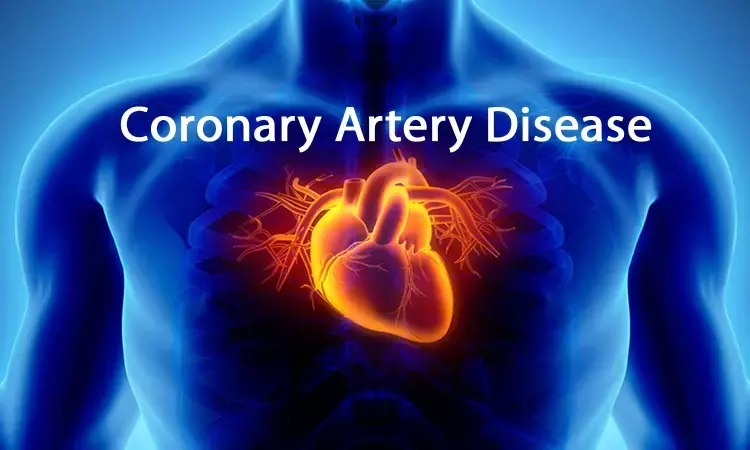- Home
- Medical news & Guidelines
- Anesthesiology
- Cardiology and CTVS
- Critical Care
- Dentistry
- Dermatology
- Diabetes and Endocrinology
- ENT
- Gastroenterology
- Medicine
- Nephrology
- Neurology
- Obstretics-Gynaecology
- Oncology
- Ophthalmology
- Orthopaedics
- Pediatrics-Neonatology
- Psychiatry
- Pulmonology
- Radiology
- Surgery
- Urology
- Laboratory Medicine
- Diet
- Nursing
- Paramedical
- Physiotherapy
- Health news
- Fact Check
- Bone Health Fact Check
- Brain Health Fact Check
- Cancer Related Fact Check
- Child Care Fact Check
- Dental and oral health fact check
- Diabetes and metabolic health fact check
- Diet and Nutrition Fact Check
- Eye and ENT Care Fact Check
- Fitness fact check
- Gut health fact check
- Heart health fact check
- Kidney health fact check
- Medical education fact check
- Men's health fact check
- Respiratory fact check
- Skin and hair care fact check
- Vaccine and Immunization fact check
- Women's health fact check
- AYUSH
- State News
- Andaman and Nicobar Islands
- Andhra Pradesh
- Arunachal Pradesh
- Assam
- Bihar
- Chandigarh
- Chattisgarh
- Dadra and Nagar Haveli
- Daman and Diu
- Delhi
- Goa
- Gujarat
- Haryana
- Himachal Pradesh
- Jammu & Kashmir
- Jharkhand
- Karnataka
- Kerala
- Ladakh
- Lakshadweep
- Madhya Pradesh
- Maharashtra
- Manipur
- Meghalaya
- Mizoram
- Nagaland
- Odisha
- Puducherry
- Punjab
- Rajasthan
- Sikkim
- Tamil Nadu
- Telangana
- Tripura
- Uttar Pradesh
- Uttrakhand
- West Bengal
- Medical Education
- Industry
Icosapent ethyl lowers risk of CV events in CAD patients on statins: RESPECT-EPA trial

Japan: Using icosapent ethyl, a purified eicosapentaenoic acid (EPA), alongside statin therapy, may reduce the risk of adverse cardiovascular events in chronic coronary artery disease (CAD) patients, results from RESPECT-EPA trial have shown.
The findings were presented on November 6 during the 2022 Scientific Session of the American Heart Association (AHA) held in Chicago.
Hiroyuki Daida and colleagues conducted the study to evaluate icosapent ethyl compared with control among CAD patients treated with statin therapy.
The trial enrolled 3,844 Japanese patients with coronary artery disease treated with statin therapy, out of which 2,506 were randomly allocated to either EPA (1,800 mg/day) or a control group. One thousand three hundred thirty-eight patients were included in a high-EPA/AA (arachidonic acid) group. The median age of the patients was 68 years; 82% were male, 45% had diabetes, and the majority had a history of cardiovascular disease and hypertension. Before inclusion, all participants received statins for at least one month.
The study's primary endpoint composite of nonfatal cerebral infarction, nonfatal myocardial infarction, death, coronary revascularization procedure, and unstable angina pectoris requiring emergency hospitalization and revascularization procedure were based on clinical findings. The secondary endpoint was the composite events of stroke, composite events of CAD, and death-related events.
The study led to the following findings:
- At two years of follow-up, the primary endpoint was the same across the EPA and control groups (4.7%), with a slight variation in favour of EPA at four years (8.6% vs 8.8%) and a more significant benefit with EPA at six years (10.9% vs 14.9%).
- Similar results occurred with the secondary endpoint, with the most significant difference occurring at six years (8.0% in the EPA group vs 11.3% in the control group).
- No significant difference in all-cause mortality was observed between the two groups. There was only a slight difference in cardiovascular mortality at six years post-randomization between the EPA (2.0%) and control (3.0%) groups.
Among Japanese patients with CAD treated with statin therapy, icosapent ethyl may reduce adverse cardiovascular outcomes. In the icosapent ethyl group, gastrointestinal disorders were more common compared with the control, as was atrial fibrillation.
Limitations include the trial being underpowered and not placebo controlled. The results were, however, consistent with JELIS and REDUCE-IT trials in showing a beneficial effect of icosapent ethyl on cardiovascular endpoints.
Reference:
Dr Hiroyuki Daida presented the findings at the Scientific Sessions of the American Heart Association, Chicago, IL, on November 6, 2022.
Dr Kamal Kant Kohli-MBBS, DTCD- a chest specialist with more than 30 years of practice and a flair for writing clinical articles, Dr Kamal Kant Kohli joined Medical Dialogues as a Chief Editor of Medical News. Besides writing articles, as an editor, he proofreads and verifies all the medical content published on Medical Dialogues including those coming from journals, studies,medical conferences,guidelines etc. Email: drkohli@medicaldialogues.in. Contact no. 011-43720751


